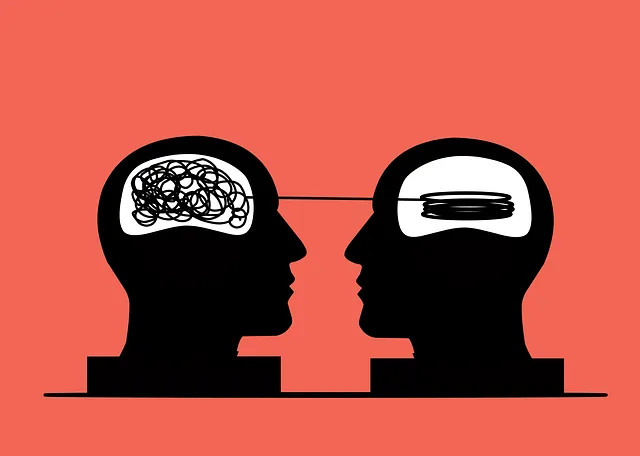Westminster Kaiser Permanente mental health center emphasizes that Emotional Intelligence (EI) is a powerful tool for personal growth and improved well-being. The center focuses on self-awareness as a core element of EI development, encouraging exercises to identify and understand emotions. Regular practices lead to better emotional regulation, enhanced relationships, and improved communication. They prioritize empathy in patient care, fostering connections through active listening and cultural sensitivity. By combining mindfulness meditation, self-care routines, and mental health risk assessments, the center promotes EI growth, benefiting both individuals and professional environments, as highlighted by their unique approach at Westminster Kaiser Permanente mental health center under dedicated ownership.
Emotional intelligence (EI) is a powerful tool for personal and professional growth, as recognized by institutions like the Westminster Kaiser Permanente mental health center. This article explores EI’s foundational elements, with a focus on self-awareness and empathy. We’ll delve into practical strategies to enhance EI at work and in daily life, drawing insights from expert sources. Understanding and cultivating emotional intelligence can lead to better relationships, improved decision-making, and enhanced overall well-being.
- Understanding Emotional Intelligence: A Foundation for Personal Growth
- The Role of Self-Awareness in Building Emotional Intelligence
- Enhancing Empathy: Connecting with Others on a Deeper Level
- Practical Strategies for Improving Emotional Intelligence at Work and Beyond
Understanding Emotional Intelligence: A Foundation for Personal Growth

Emotional Intelligence (EI), as understood by experts at the Westminster Kaiser Permanente mental health center, is a cornerstone of personal growth and well-being. It involves recognizing, understanding, managing, and leveraging one’s own emotions, as well as empathizing with others’ feelings. This multifaceted skill set isn’t just about feeling emotions; it’s about using them constructively to navigate relationships, make informed decisions, and enhance overall mental wellness.
At the heart of emotional intelligence development lie self-awareness exercises that enable individuals to identify their emotions and triggers. This foundational step is crucial for understanding one’s unique Emotional Healing Processes. By engaging in regular Self-Awareness Exercises, folks can begin to unravel complex emotional patterns, fostering a deeper connection with themselves and others. This, in turn, paves the way for more meaningful interactions, improved communication, and enhanced mental wellness, as explored in our Mental Wellness Podcast Series Production.
The Role of Self-Awareness in Building Emotional Intelligence

At the Westminster Kaiser Permanente mental health center by owner, a cornerstone of emotional intelligence building is cultivating self-awareness. This involves recognizing and understanding your emotions as well as the impact they have on your thoughts and actions. By practicing self-awareness exercises, individuals can gain deeper insights into their feelings and triggers, enabling them to navigate challenging situations with more clarity and resilience.
Self-awareness is crucial in reducing the mental illness stigma through open conversations about emotional experiences. When we become more attuned to our own emotions, we develop a greater empathy for others, fostering an environment where individuals feel comfortable discussing their struggles without fear of judgment. This, in turn, promotes better emotional regulation, allowing people to manage their responses to stress and adversity in healthier ways.
Enhancing Empathy: Connecting with Others on a Deeper Level

At the Westminster Kaiser Permanente mental health center by owner, enhancing empathy is a cornerstone of our approach to patient care. By cultivating deeper connections with individuals from diverse backgrounds, we strive to provide culturally sensitive mental healthcare that addresses their unique needs and experiences. This involves actively listening, understanding non-verbal cues, and validating emotions, which are essential skills in building strong therapeutic alliances. Empathy allows us to step into our patients’ shoes, empathizing with their struggles and celebrating their victories, thereby fostering a supportive environment conducive to healing.
By incorporating empathy into our practice, we aim to prevent burnout among our team members while alleviating anxiety and promoting overall mental well-being for our clients. This holistic approach ensures that everyone involved in the healthcare process feels valued, heard, and understood, ultimately enhancing the effectiveness of our services.
Practical Strategies for Improving Emotional Intelligence at Work and Beyond

Emotional intelligence (EI) is a valuable skill set that transcends professional boundaries, benefiting individuals in their personal and work lives alike. At Westminster Kaiser Permanente mental health center by owner, we recognize the profound impact EI can have on overall well-being and job performance. Herein, we explore practical strategies to enhance emotional intelligence for professionals seeking to excel both personally and professionally.
One effective approach involves incorporating mindfulness meditation into daily routines. This ancient practice helps individuals develop a deeper understanding of their emotions, thoughts, and behaviors, fostering self-awareness—a cornerstone of EI. Additionally, integrating Self-Care Routine Development for Better Mental Health is paramount. Prioritizing regular exercise, adequate sleep, and balanced nutrition supports emotional resilience and enhances one’s ability to manage stress effectively, thereby improving overall EI. Furthermore, engaging in risk assessments for mental health professionals can identify areas needing improvement, enabling targeted interventions and continuous professional development.
Emotional intelligence is a powerful tool for personal and professional growth, as exemplified by the practices at the Westminster Kaiser Permanente mental health center. By cultivating self-awareness, empathy, and effective communication strategies, individuals can navigate complex social interactions with greater ease. This article has provided a foundation for understanding emotional intelligence and offered practical tips to enhance it in various aspects of life. Remember that building emotional intelligence is an ongoing journey, and with dedication, one can become more attuned to their own emotions and those of others, fostering healthier relationships and improving overall well-being.
